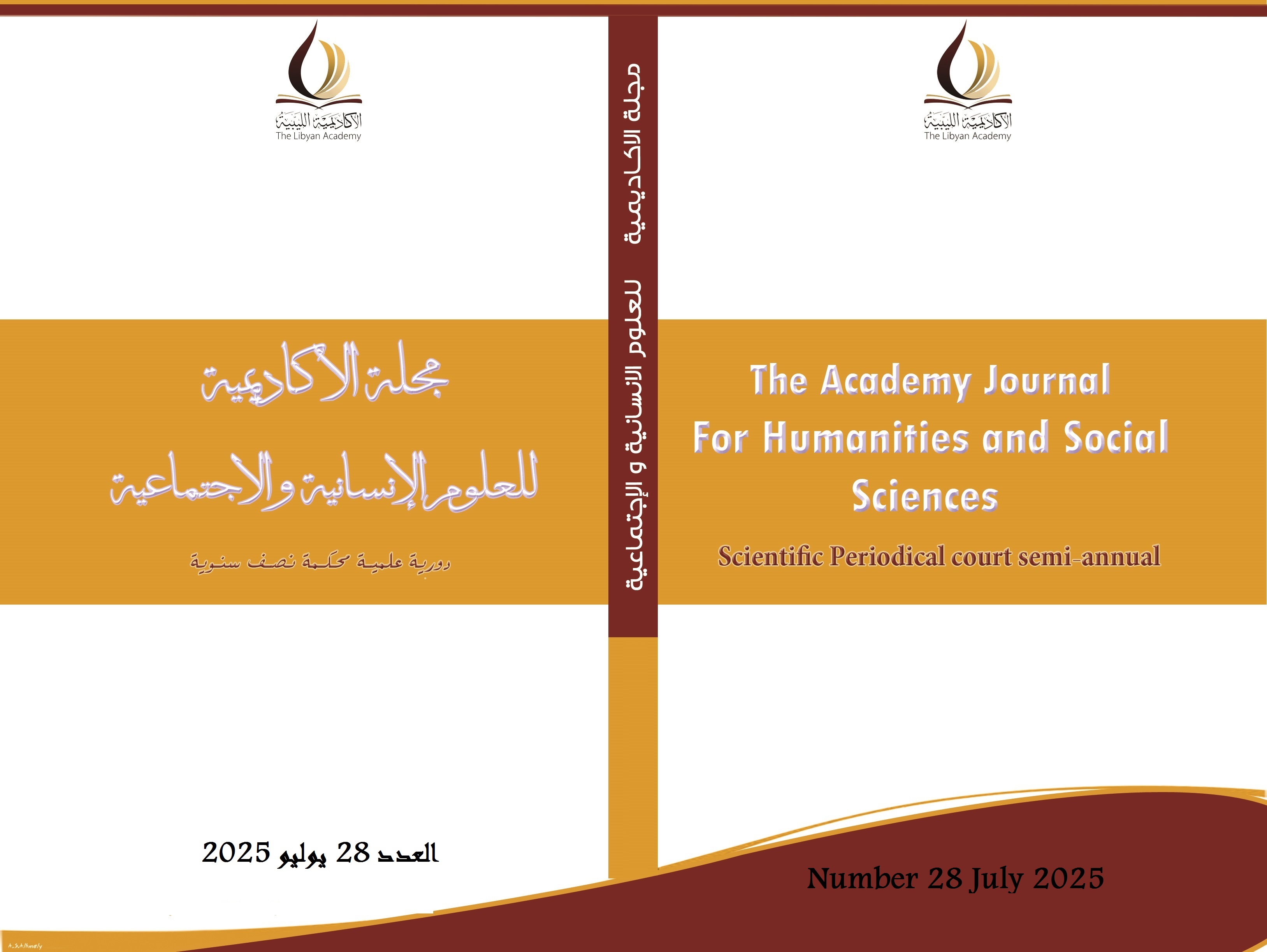Automated Administrative Decision-Making in the Era of Artificial Intelligence
: An Analytical Study of Legality, Challenges, and Avenues for Judicial Review
DOI:
https://doi.org/10.64095/ajhss.v16i28.105Keywords:
Artificial intelligence, automated (algorithmic) administrative decision, cancellation control, digital transformation, algorithms.Abstract
The world is currently witnessing a new revolution in technological advancement and digital transformation. Artificial Intelligence (AI) is evolving at an accelerated and intricate pace, producing vast amounts of data and demonstrating exceptional capabilities in self-learning without the need for direct human intervention. AI has now become capable of making autonomous (algorithmic) decisions.
As governments enter the era of e-governance and digital transformation, the need has emerged for advanced systems capable of processing big data using AI technologies. This has enabled the application of AI in various administrative domains. For example, in the field of public procurement, AI systems are now undertaking automated announcements of tenders and selecting the best offers based on economic advantages. In the realm of administrative policing, algorithmic systems have proven effective in providing “digital vigilance” for preventive security agencies by continuously analyzing online data and issuing early alerts regarding potential threats to public order.
Given these rapid developments in modern administrative practices, particularly with the growing reliance on AI applications, it has become imperative to reconsider certain legal concepts within the framework of public law, especially administrative law. One of the most prominent issues in this regard is the administrative decision issued by AI systems. This study aims to examine the legality of such decisions, their nature, elements, characteristics, and the possibility of challenging them before administrative courts. It also seeks to explore the legal challenges and issues encountered in comparative legal systems that have implemented such practices, and to highlight key judicial rulings addressing the legality of this new category of administrative decisions.
References
• المراجع العربية:
عودية، بلخير محمد آيت. (2020). "القرار الإداري الخوارزمي". - مجلة الاجتهاد للدراسات القانونية والاقتصادية، 9(3).
عباس، أحمد ناصر. (2022). "القرارات الإدارية المؤتمتة والسلطة التقديرية لجهة الإدارة". - ورقة بحثية مقدمة في مؤتمر التحديات والآفاق القانونية والاقتصادية للذكاء الاصطناعي.
أحمد، رشا محمد صائم. (2020) . تطبيقات الإدارة للذكاء الاصطناعي في اتخاذ القرارات الإدارية (رسالة ماجستير). كلية الحقوق، جامعة الشرق الأوسط.
أبو العيد، طاهر. (2023). "دليل الذكاء الاصطناعي لطلبة القانون والقانونيين في الوطن العربي"-. مجلة قانونية وتكنولوجيا.
ضيف الله، زينب. (2023)." الذكاء الاصطناعي والقانون". - مجلة القانون والعلوم البينية، 2(3).
أحمد، رشا محمد صائم. (2022. (تطبيقات الإدارة للذكاء الاصطناعي في اتخاذ القرارات الإدارية (رسالة ماجستير). كلية الحقوق، جامعة الشرق الأوسط.
الدحيات، عماد عبد الرحيم. (2019). "نحو تنظيم قانوني للذكاء الاصطناعي في حياتنا: إشكالية العلاقة بين البشر والآلة". - مجلة الاجتهاد للدراسات القانونية والاقتصادية، (5). كلية القانون، جامعة الإمارات.
عبد القادر، مطاوع. (2012( . تحديات ومتطلبات استخدام الذكاء الاصطناعي في التطبيقات الحديثة لإدارة المعرفة .- القاهرة: دار النهضة العربية.
السيد، أسماء. (2020) تطبيقات الذكاء الاصطناعي ومستقبل تكنولوجيا التعليم (أطروحة دكتوراه). كلية التربية، جامعة المنيا.
عبد الحميد، أسماء. (2020). "أثر التطبيقات الإدارية للذكاء الاصطناعي على الميزة التنافسية لمنظمات الأعمال بالتطبيق على فروع البنوك التجارية بمدينة المنصورة-. "المجلة العلمية للدراسات والبحوث المالية والتجارية، جامعة دمياط.
مطر، عصام عبد الفتاح. (2013) الحكومة الإلكترونية بين النظرية والتطبيق-. الإسكندرية: دار الجامعة.
• المراجع الأجنبية:
Russell, S. J., & Norvig, P. (2021). Artificial intelligence: A modern approach (4th ed., pp. 19–22). Prentice Hall.
Yeung, K. (2018). Algorithmic regulation: A critical interrogation. Regulation & Governance, 12(4), 505–523. https://doi.org/10.1111/rego.12160
Boudinar-Zabaleta, A. (2017). La décision administrative algorithmique. La Revue du Droit Public Approfondi, 8–13.
Loi, M. (2021). Automated decision-making systems in the public sector: An impact assessment tool for public authorities (p. 7).
Prygodicz, K., & Others v. The Commonwealth of Australia (No. 2), FCA 634 (11 June 2021). Federal Court of Australia.
AlgorithmWatch. (n.d.). The algorithmic administration: Automated decision-making in the public sector. https://algorithmwatch.org/en/project/adm-dossier/
Pinsent Masons. (n.d.). AI in HR – Netherlands. https://www.pinsentmasons.com/thinking/publications/ai-in-hr-netherlands
Council of Europe. (n.d.). Turning to artificial intelligence for better public service. https://www.coe.int/en/web/artificial-intelligence/public-service
CAHAI. (2020). Artificial intelligence and human rights: A recommendation for the development of a legal framework (pp. 3–4). Council of Europe.
European Union. (2016). General Data Protection Regulation (GDPR), Article 22 and Recital 71. Regulation (EU) 2016/679.
Downloads
Published
How to Cite
Issue
Section
License

This work is licensed under a Creative Commons Attribution-ShareAlike 4.0 International License.





